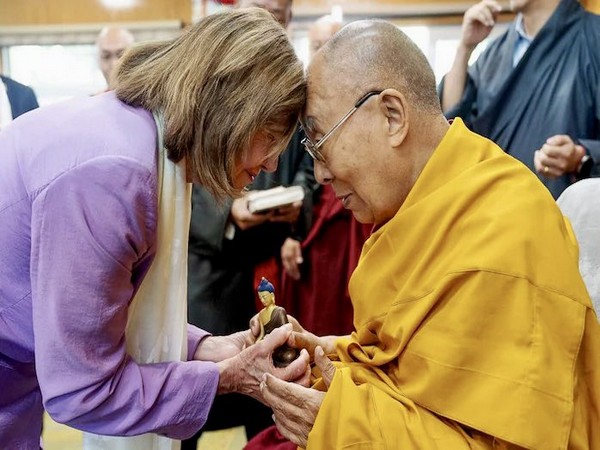Dalai Lama's Political Views: A Stumbling Block in China Talks
The Chinese foreign ministry has stated that the Dalai Lama must 'thoroughly correct' his political views for formal talks with China to resume. Despite stepping down as the political leader of the Tibetan government-in-exile in 2011, the Dalai Lama remains a significant spiritual leader, causing tension between China and other countries.

The Chinese foreign ministry said on Thursday that exiled spiritual leader of Tibetan Buddhism the Dalai Lama must "thoroughly correct" his political views as a condition for contact with China's central government to resume.
Formal talks between China and the Dalai Lama, who fled to India in 1959 after a failed Tibetan uprising against Chinese rule, and his representatives have been stalled since 2010. "With regard to contact and negotiations between the central government of China and the 14th Dalai Lama, our policy has been consistent and clear," said Lin Jian, a spokesman at China's foreign ministry.
"The key is that the 14th Dalai Lama must fundamentally reflect on and thoroughly correct his political views," Lin said at a regular ministry news conference. The Dalai Lama stepped down in 2011 as the political leader of the Tibetan government-in-exile, which Beijing does not recognise and views as a violation of China's constitution.
Yet China continues to chafe at any interaction he has with officials of other countries, including former U.S. presidents, even though the Dalai Lama says he is not seeking independence for Tibet. The 88-year-old, whom China sees as a dangerous separatist in a monk's robes, remains the spiritual leader of the Tibetan people.
U.S. lawmakers are currently asking President Joe Biden to sign a bill aimed at pressing China to secure a negotiated and peaceful agreement on Tibet. A group of U.S. lawmakers, who met the Dalai Lama in India on Wednesday, said they would not allow China to influence the choice of his successor.
While Washington recognises Tibet as a part of China, the bill appears to question that position, analysts say. Beijing has rejected the Resolve Tibet Act, saying Tibet is part of China and brooks no interference from external forces.
"We urge the United States to fully recognise the importance and sensitivity of Tibet-related issues and earnestly respect China's core interests," Lin said. "We should abide by our commitment on the issue of obstacles, refrain from any form of contact with the Dalai clique, and stop sending wrong messages to the outside world."
(This story has not been edited by Devdiscourse staff and is auto-generated from a syndicated feed.)
ALSO READ
Tibetan Parliament-In-Exile Deputy Speaker welcomes US 'Resolve Tibet Act', awaits Biden's signature
US Congressional delegation visits Tibetan parliament-in-exile in Dharamshala
From Hong Kong to the Ballot Box: Exercising Democracy in Exile
Belarus Sentences Exiled Opposition Leader to 20 Years in Absentia
"Politically and symbolically very important": Former Tibetan PM-in-Exile on US Congressional delegation's meeting with PM Modi










